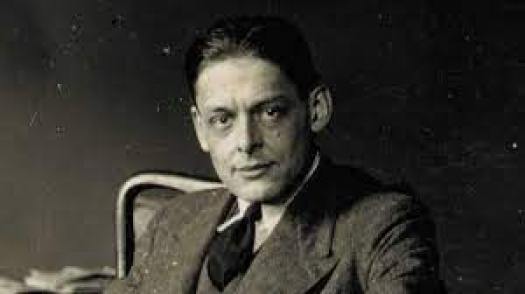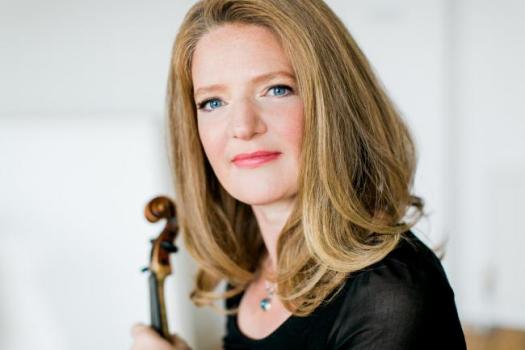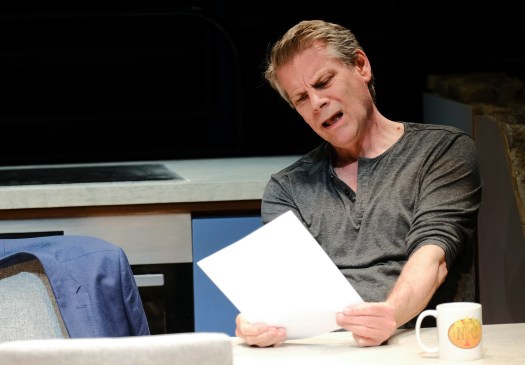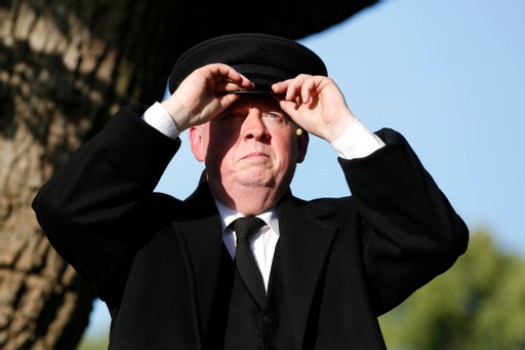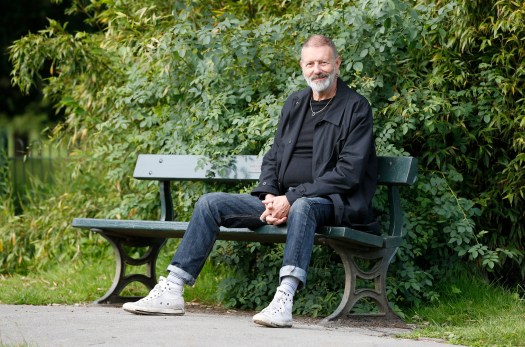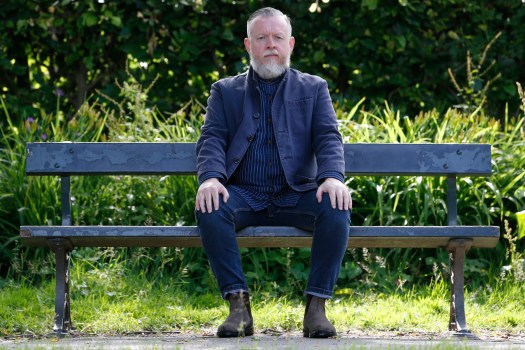
“NEVER look into the eye of Black Shuck,” warns actor, director, teacher and now writer Michael Lambourne, a familiar face and booming voice to York theatregoers.
Now relocated to his Fenland roots, he returns north this weekend to present the Theatre At The Mill premiere of Black Shuck: How It Came For Me, his “responsive storytelling experience” based on the legend of the Demon Dog of East Anglia: a hound of unnatural size and omen of misfortune to those who encounter its stare.
“According to the folklore tale of the black dog, if you see its eyes, it foretells your demise,” says Michael, who is yet to have such a creepy canine experience but has come across myriad versions of the story, whether of the scratch on the Blythburgh church door, or from Bungay, Blakeney Point or Chatteris Fen.
“The Darkness have a song called Black Shuck on their first album, Permission To Land, as they’re Lowestoft boys,” he continues. “Originally it’s a story from Norse mythology, from the Danes who took over East Anglia, telling of life and death, about everyone’s mortality.”
He is speaking en route to Southend-on-Sea earlier this week to teach his theatre students before setting off to North Yorkshire to perform Black Shuck on Saturday evening (24/7/2021) under the sails of At The Mill’s outdoor theatre at Stillington Mill, near York, where he played Prospero in The Flanagan Collective’s production of The Tempest by the mill pond in June 2016.
“I’ve been wanting to tell stories about where I’m from, and I thought, ‘what better way to tell East Anglia’s story than with a ghost story’, as I look to create art myself, stepping to the fore doing my own work, writing it, creating it and performing it, and hopefully it will appeal!” he says.
“Saturday will be the first airing of the new piece, and this performance came from a kind of call to arms that Alex [At The Mill co-founder, playwright, storyteller, musician and director Alexander Wright] made two to three months ago.

“I thought, ‘what better time than the present to do that?’, and for this first show, I’m just going to use the ambience of the beautiful garden and my vocal timbre. By the time dusk comes around, there’ll be the hoots of owls.”
Exploring the enduring effect that Black Shuck has on Fenland folklore, Michael’s performance will offer a personal account of how a rural myth can become a chilling part of the present day.
The choice of folklore tale and its portent of exit stage left chimed with his own experience. “I went from a happy 40 year old to being in hospital with the doctor telling me my symptoms could signal my demise,” recalls Michael, husband of Paines Plough co-artistic director Katie Posner (formerly associate director of Pilot Theatre in York) and father of Heidi.
In the doctor’s hand was the scan that would signify whether Michael had cancer that would need an operation and “could shuffle me off my mortal coil”.
“I’d had a biting pain in my leg for months, where it got to the point I couldn’t walk – it was almost like a dog had bitten me in the leg. I was still way off from thinking of going for an MRI scan, but then I heeded Katie’s advice.”
Scans at Addenbrooke’s Hospital, Cambridge revealed a black hole in his spine, where his number two vertebrae should have been. Five days of being prodded and poked in hospital followed.
Michael was diagnosed with lymphoma, the blood cancer. “It had manifested itself in my back, apparently after I fractured my spine, though I can’t think of any time in my life when my back has caused me problems,” says the walking and cycling enthusiast.

Chemotherapy and radiotherapy sessions were necessary, but not an operation. “As well as ‘demise’, the Black Shuck folklore signifies your life is about to change, and how you respond to it is up to you. I embraced it, but not that thing where people talk of ‘fighting’ cancer,” says Michael.
“I want to build my body back into balance, using art as catharsis. It just so happens that ball was passed to me and I handled it this way.
“At the final session of chemotherapy, I was overcome with emotion; the nurse would have loved to have given me a hug, but she couldn’t because of the Covid situation, so she just took me by the hand. But by then it wasn’t even a sense of relief. It was just emotion.”
Happily, Michael conducting this interview and performing Black Shuck would indicate his ongoing recovery. “I’m in remission now and hopefully I’ll be able to tell this story for many years to come,” he says.
“I don’t dwell on it in Black Shuck, though it’s an inherent part of the story. The piece is 95 per cent there and now I’m confronting that thing of deciding ‘what is the real message?’.”
Push him further, and Michael urges: “Time is precious and we need to spend it well. Rather than waiting for things to happen, you must actively change it yourself.”
What better way to do that tomorrow night than to experience the stare of Michael Lambourne as he relates the story of Black Shuck. “I’ll be telling the tale in my natural Fens accent, connecting with the place I come from, as my family are truly from the Fens. That’s my heritage,” he says. “It’s not a great stretch to think my forefathers knew about Black Shuck and talked about the demon dog in the pub.”

SCOTTISH storyteller Shona Cowie will open the evening with her tale of Bruadarach (noun: dreamer/visionary) at 7.30pm.
Once a creative associate at York Theatre Royal, Shona presents myths of re-imagining and transformation from the Scottish oral tradition, myths called on for centuries as guides through times of change.
A highly physical performer, who brings mime and song to the traditional Celtic style, she is dedicated to bringing front and centre those who have too often been pushed to the margins of stories.
“I worked with Shona at the Theatre Royal, and now we’ll both be doing our ‘fireside chats’ at Stillington,” says Michael Lambourne. “Her work is very lyrical and spiritual, told with a wonderful Scottish lilt.”
In addition, on Sunday at 2pm, Shona will present Beware The Beasts, a show for families (age five upwards), where she will provide case studies from leading monster evaders and offer instruction on the most effective ways to avoid being squashed, eaten or turned into a nugget.
For tickets for tomorrow or Sunday, go to: tickettailor.com/events/atthemill/.
Did you know?
Here is the opening verse to Black Shuck by The Darkness:
“In a town in the east
The parishioners were visited upon
By a curious beast
And his eyes numbered but one and shone like the sun
And a glance beckoned the immediate loss
Of a cherished one
It was the coming of the… Black Shuck”




